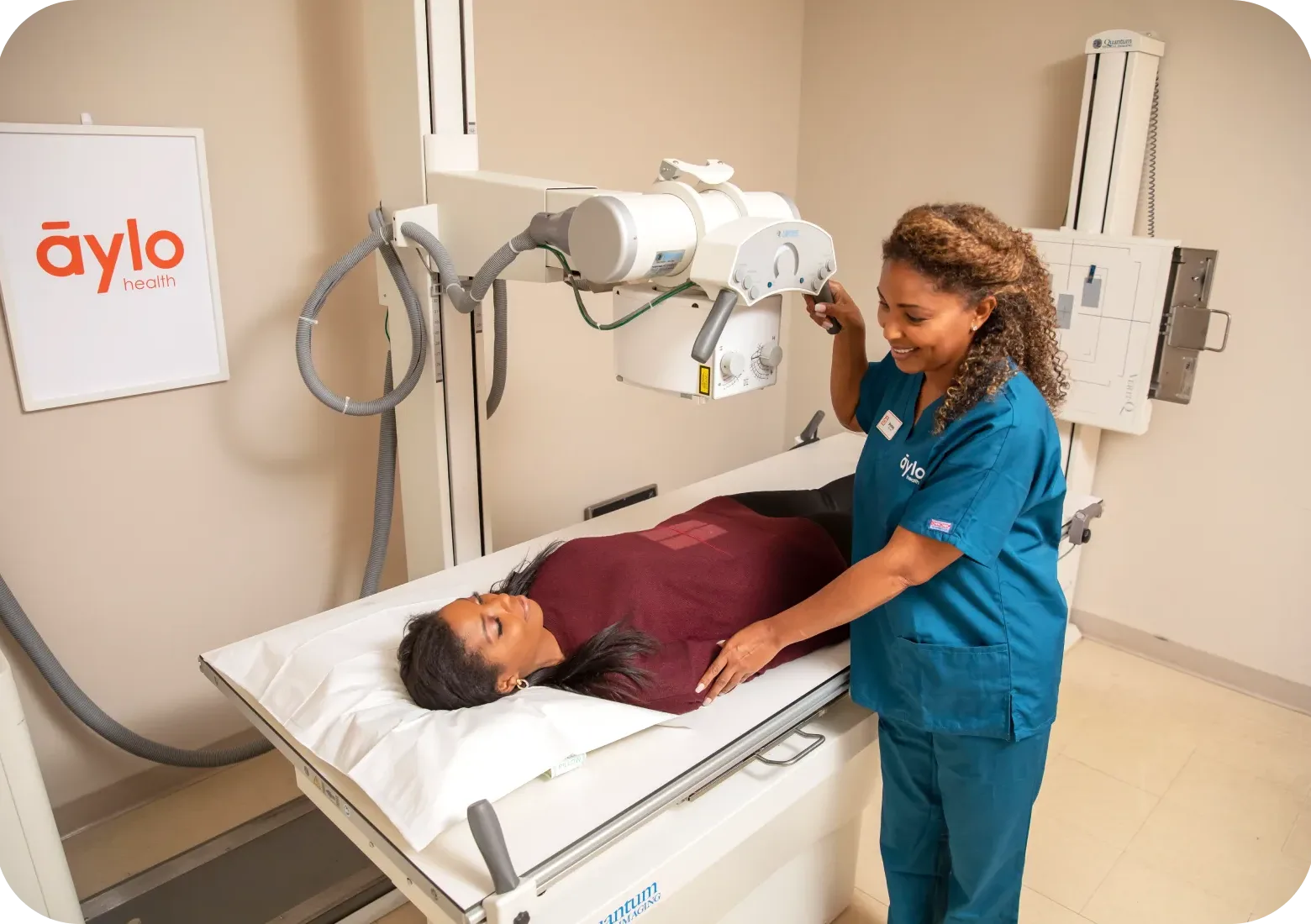Osteoporosis: What is it and How to Detect it?
July 17 • 2023

Today we’re discussing osteoporosis, what it is, how to detect it, and how to treat it. We understand that the topic can be overwhelming, especially because it deals with bone health and affects so many people, but we’re here to demystify the condition and empower you with tools to speak to your doctor about it.
Let’s break down what osteoporosis is.
Osteoporosis is a bone disease that affects nearly 1 in 5 women and 1 in 20 men over the age of 50. It starts to develop when your bones begin to lose bone mass, meaning your bones have lost structure and strength which makes them more prone to breaking.
Most people don’t even realize they have osteoporosis until they fall and go to the doctor for an unexpected visit for a fractured or broken bone, because people typically don’t show symptoms. Which is why it’s so important to see your primary care doctor annually to check in on your body and create a baseline of health.
Now, like with a lot of health issues, there are always people who are at higher risk than others.
So, who are the people considered to be at high risk for developing osteoporosis?
- People who are underweight
- White, and people of Asian descent
- Women going through menopause
- Postmenopausal women
- Heavy smokers
- Heavy drinkers
- Chronic steroids users
If you fall within some of the categories above, you should speak to your primary care doctor about your risk level and ask when you should start getting tested for osteoporosis, if you haven’t been tested already.
How do doctors detect osteoporosis?
If you are at risk for osteoporosis, your provider will have you take a DEXA scan, more commonly known as a bone density test, to check your bone density and compare it with the bone density of a young healthy adult. The scan works similarly to an x-ray. Usually, the target areas doctors want to look at are your lower back, and two different parts of your thigh bone. These places are most likely to indicate if you’re losing bone mass. Those areas of the body can change if you have a prosthetic.
At Aylo Health, our providers start preventive testing for women after they turn 50, and for men who are in the high-risk category. We follow the recommendation of the US Preventative Services Task force (3) by recommending patients to get a DEXA/bone density test every two years to check what’s going on. In most cases, because the testing is seen as a preventive measure to keep you healthy, it is likely your insurance will cover this. However, we always recommend you reach out to your insurance company to confirm whether your plan will cover the cost of a DEXA scan.
When preparing for your bone density test make sure to wear loose-fitting clothing with no metal accessories, then prepare to lay down and be still. This test usually takes about 15 minutes, and it’s noninvasive, so the scan is completely pain free. Since the scan is so quick it’s best to go to an imaging center near you. Aylo Health’s most recent imaging center opened up in Locust Grove, see if we have an imaging center close to you!
If you’re worried about the radiation levels when getting the scan don’t worry. The amount of radiation is the same as one week of talking on your cell phone with average use. And though radiation isn’t something people love to encounter, once you know what’s going on with your body, the better you can prevent, treat, and even stop Osteoporosis from getting worse.
What are the treatments for Osteoporosis?
Treatments Include:
- Taking Calcium
- Taking Vitamin D
- Low impact exercises like walking
- A healthy, nutritious diet
- Medications your doctor may prescribe to you
It’s important to listen to your doctor about treatments and steps to make sure your bone density doesn’t deteriorate even further.
If you have any more questions or are curious to learn more about Osteoporosis or the Dexa scan/bone density test: we recommend checking out the CDC and the National Institutes of Health (NIH) for the most up to date information.
Do you need to schedule your DEXA/bone density test? We have a hassle-free online appointment scheduler where you can do just the thing. (5)